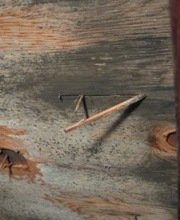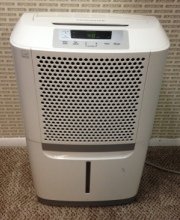Find a Mold Specialist Now
Click or Call, Toll-Free 24/7
Asthma due to mold exposure in the home
Asthma due to mold exposure is not uncommon. Not only can mold trigger an asthma attack in people previously diagnosed with the condition, it can also lead to asthma or asthma-like symptoms in people not previously diagnosed with the condition. We'll explain why mold sometimes triggers asthma attacks and tell you what to do if you're experiencing mold-related asthma.
Why Does Mold Cause Asthma Attacks?
Asthma is a chronic illness affecting the respiratory system. When someone has an asthma attack, the muscles around the bronchioles, or air passages leading into the lungs, tighten, making the passages narrower than normal. In addition, the lining of the bronchioles becomes inflamed or swollen, further narrowing the airways.
Mold spores irritate the airways when inhaled (and if mold is present, these mold spores are easily inhaled) and this can trigger an asthma attack. Some people are allergic to mold and exposure can trigger an allergic reaction that further exacerbates the symptoms of an asthma attack.

Can Mold Cause Asthma?
Exposure to mold often triggers asthma attacks in those diagnosed with the condition, but can it cause asthma to develop in people not previously diagnosed with the condition? According to the Centers for Disease Control and Prevention (CDC), exposure to mold has been linked to the development of asthma in small children. The research is still out as to whether or not it can cause the development of asthma in previously healthy adults, but it certainly can cause asthma-like symptoms, including shortness of breath and wheezing.
What about Toxic Mold?
Stachybotrys chartarum is sometimes referred to as toxic mold or toxic black mold, although the mold itself is not really toxic. It does, however, produce toxic substances known as mycotoxins. The asthma toxic mold causes is not noticeably different than the asthma symptoms caused by other types of mold, but the mycotoxins may cause other symptoms in addition to asthma. You can read about health problems caused by toxic black mold.
Treating Asthma Due to Mold
If you're experiencing asthma attacks or asthma-like symptoms that you think might be caused by mold, you should see your physician. If you've never been diagnosed with asthma, start with your primary care physician. Your doctor might end up referring you to an allergist or a pulmonary (lung) specialist, but the Centers for Disease Control and Prevention suggests starting with your regular doctor. If you have asthma, then see the doctor that normally treats you for the condition. Make sure to let your doctor know if you've been exposed to household mold or think mold might be causing or contributing to your symptoms.
If your child is experiencing symptoms of asthma, including difficulty breathing, wheezing and coughing, schedule an appointment with his or her pediatrician. Let the pediatrician know if your child has been exposed to mold in the home.
According to the U.S. National Heart, Lung and Blood Institute, there is no known cure for asthma. However, the condition can be managed with medication and by avoiding known asthma triggers.
Eliminating Exposure to Mold
Treatment for the asthma toxic mold or other types of mold causes is unlikely to be very effective if you continue to be exposed to mold. You'll need to have the mold eliminated from your home in order to protect your heath and reduce your symptoms.
The process of removing mold stirs up hundreds of thousands of mold spores – more, maybe many more, if the mold covers a large surface area – which is likely to aggravate your symptoms or trigger an asthma attack. For this reason, if mold is making your asthma worse or causing you to experience asthma-like symptoms, we suggest arranging for someone else to handle the mold removal process for you. If you're considering doing the work yourself, the U.S. Environmental Protection Agency recommends consulting with your doctor before beginning the job. If you're experiencing severe symptoms of asthma due to mold, your doctor may recommend you not even stay in your home until after the mold has been removed.
For Help with Mold Removal
If you need to arrange for help with household mold removal, we suggest scheduling a free consultation with a mold remediation professional. An experienced professional will visit your home to inspect for mold, advise you about the work that needs to be done, and give you a written estimate for the cost of the job. The professional will also answer any questions you may have. To find qualified mold remediation professionals offering free consultations near you, just follow the link.
Return From Asthma Due To Mold To Our Main Mold Health Issues Page
Ref:
How is Asthma Treated and Controlled?




